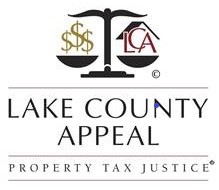Like the celestial alignment of the moon with planets and stars, my Lake County property tax bill arrived just prior to this year’s federal and state income tax deadlines. Unlike those heavenly orbs, the coincidence wasn’t one of rapture.
It was, well, taxing.
If I were a dog, such news would cause the hackles of my neck to rise in anger and alarm. Such is the response to the duality of living in one of the nation’s highest-taxed counties and states.
Often accused of being a hoarder, having last year’s county tax bill on hand proved a hypothesis I’ve long believed: That during election years, taxing bodies lower their tax levies, thus reducing our overall tax bills.
My current county tax bill, like I think those of my many fellow suffering property owners, rose this year. Last year, an election year, the 2019 tax bill due in 2020 — because we’re always a year behind — decreased substantially.
Indeed, my tax charges due this year increased 2.7 %. The first 2020 installment is due June 7, the second on Sept. 7.
Last year, the County Board allowed property owners to split their tax bills into four equal payments because of the economic impact of the coronavirus pandemic. Not so this year, as it looks like the health crisis is moving closer to being history.
Every taxing body reduced their rates on my 2019 tax bill, so it was substantially less than the prior year. For instance, the County of Lake’s rate dropped $48.69 (per $100 of assessed property valuation); the pension rate was $9.05 cheaper. The Forest Preserve rate was $14.11 less; the district’s pension fund, a dip of $1.83.
Thus, those running for reelection to the County Board in 2020 could boast they cut taxes. Or for that matter, others seeking elected positions to taxing body boards. From the College of Lake County (down $22.88) to the North Shore Water Reclamation District (down $12.44), taxes paid in 2020 shrunk.
But come 2021, CLC’s charge on my bill is up $7.92 (per $100 valuation), the sanitary district $4.08 higher. From schools to park and library districts, to the township, my tax bill is up.
The county portion, though, is down, a testament to county bean counters watching the bottom line. The savings? A mere two bits, a quarter to you millennials.
Prior to the federal and state tax deadlines of May 17, extended from the usual April 15 due date because of the COVID-19 emergency, Congressman Brad Schneider, D-Deerfield, groused about reinstating the State and Local Tax Deduction for those of us who pay a lot of federal income tax. In 2017, the Trump administration capped the SALT deduction at $10,000 when filing federal tax forms.
Hence, it limits local property tax deductions and hikes federal and state income taxes for many, not only in Illinois, but other high-tax blue states. Especially hit have been homeowners in Lake County, whose property tax bills are often north of that $10,000 cap.
Schneider, who has been a leader in Congress along with other blue-state Democrats, is fighting to repeal the cap. He estimates the lesser deduction affects some 42 % of the 10th Congressional District households he represents.
Of course, Schneider and 10th District taxpayers wouldn’t have to worry about the SALT deduction if our local tax bills weren’t so lofty. That’s the unfair burden Lake County taxpayers have to bear.
It’s a taxing one.
